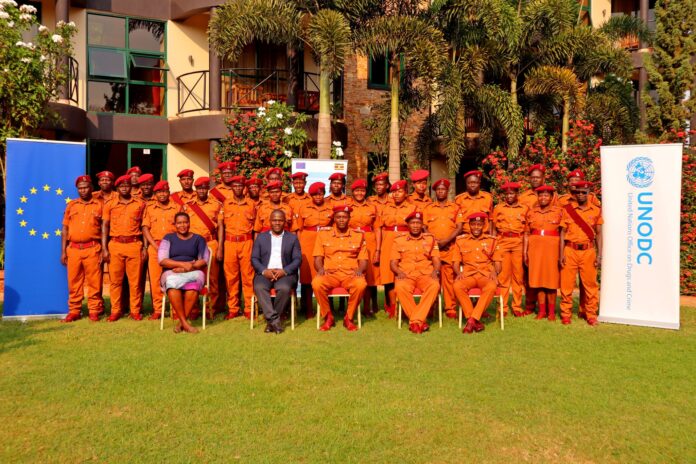The Uganda Prisons Service, in partnership with the United Nations Office on Drugs and Crime (UNODC) and the European Union (EU), has launched a five-day training program for prison officers in a significant move to strengthen the fight against violent extremism in Ugandan prisons.
The training, which commenced in Jinja City, will cover the administrative regions of South Eastern, East Central, and Iganga, with 60 prison officers participating in the course.
According to Simon Alex Ben Wansadha, Commissioner of Prisons Safety, Security, and Operations, the program aims at enhancing the capacity of prison staff to manage violent extremist prisoners and prevent radicalization within prison walls.
“Prison officers are the front-line defenders against radicalization, and it is crucial to equip them with the necessary skills and knowledge to prevent the spread of violent extremism in prisons,” Wansadha said.
Wansadha noted that the program emphasizes the need for a multidisciplinary approach, involving not only prison staff but also community leaders, religious leaders, and civil society organizations.
“The goal is to shift the focus of prisons from mere containment to a rehabilitation-centered approach where inmates can be prevented from falling into the grip of violent extremism,” he added.
He further revealed that so far, the participants have learned about the UN Standard Minimum Rules on the treatment of offenders and the Global Counter-Terrorism Strategy by equipping them with the knowledge to implement best practices in their respective institutions.
Wansadha added that the training program will reach over 400 prison officers nationwide, drawn from the existing 269 stations across all 19 administrative regions of Uganda.
“This proactive approach is a crucial step in safeguarding the security and well-being of the Ugandan people,” Wansadha added.
This initiative is part of a broader effort by the Ugandan government, in collaboration with its international partners, to combat the rising threat of violent extremism in the region.
The program which commenced on July 1, 2024, will end on July 5, 2024,















